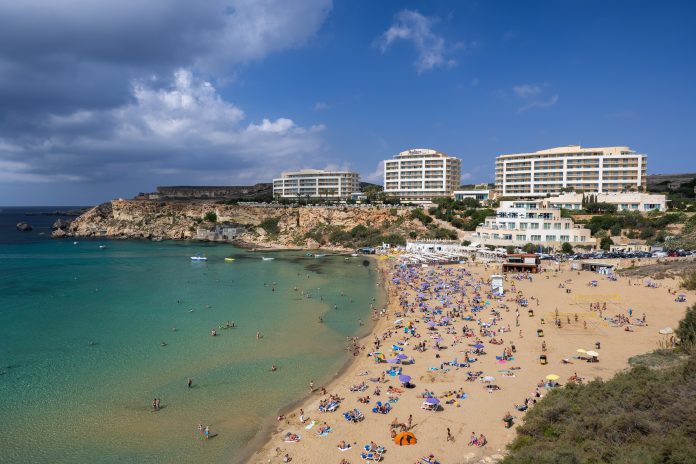Where can international language students study now? Melanie Butler finds out
Aviral video of a beach party in the Maltese resort of Sliema is a sign that summer is here, while the report on the Lovin Malta website that ‘the group of youths form part of an English language school’ shows that the Mediterranean island nation, which opened its doors and its language schools to foreign visitors in early June, can expect a bumper summer – especially as the opening dates of the other main summer school destinations remain uncertain.
On 4 June, the Maltese government announced a €10-a-day voucher scheme for all visitors enrolling in a local language school for between 15 and 30 days. According to Tourism Minister Clayton Bartolo, while the main aim of the scheme is to support the country’s Covid-hit English language industry, giving students €10 to spend in Malta for every night of their visit would ensure the students would spend more money in local businesses during their stay.
Tourists from a wide range of countries, including most of the EU, can enter the country if they can to produce a negative Covid test result before boarding their flight or, alternatively, from 1 July, a certificate showing the traveller is fully vaccinated. Some Covid restrictions about safe distancing remain, though as this article goes to press they are gradually being lifted. All too late for the students at the Sliema beach part who, locals complained, were guilty of breaking the rule that no more than six people should mix outside and drinking should not be permitted except at a table of four with food.
Vaccine passports
This vaccine-passport approach to language travel has also been signalled by Canada, although a date for the launch of the new system has yet to be set. Under the new policy, students would still have to self-isolate for up to five days in a residence or homestay while awaiting the results of the Covid test they are required to take on their arrival in the country. The country’s language travel industry, which includes language schools for both English and French, has welcomed the proposal, noting that it would remove the need for students to spend time and money in the country’s ‘Covid hotels’, which are reported by schools and agents as a major reason for students reluctance to enrol in Canadian schools.
The USA is also expected to adopt the vaccine passport approach to foreign travel, with the Biden administration demonstrating approval for allowing vaccinated EU citizens to enter the country this summer.
Vaccine passports, however, are not generally available to the under-16s, the largest cohort in the European summer school market, as vaccinations for under 18s has only been recently approved and few youngsters are likely to have had both jabs before the July peak for junior courses has passed.
Ireland, which is following the EU agreement, is also likely to accept vaccine passports when international travel resumes. Citizens from EU countries should also be allowed to enter with a negative Covid test if international travel restrictions are lifted as
“Quarantine rules make it hard for short-stay students”
scheduled by mid-July, with most language schools looking to re-open shortly after for a truncated summer season.
The outlook for the UK market, by far the largest of the main summer school destinations, remains uncertain. Although the UK schools are currently open, the ongoing quarantine rules make it hard for short-stay students to come. Schools are hopeful, though, of some summer business in August, mirroring the experience of 2020 when there was a surge in late summer.
Southern hemisphere
In the southern hemisphere, now in its winter season, South Africa is open for business and some schools are advertising junior courses, though travellers from some countries may face quarantine when they return home.
Australia remains closed, although there is talk of some states running pilot programmes for international university students in the near future. There is good news for international students who are working in the country, as the government proposes, for the first time since Covid struck, to include them in the next financial support package.
It is in New Zealand, however, that the future looks most bleak, with industry figures warning that the entire English language industry could collapse by the end of the year, according to the RNZ website. Although the university language centres are likely to survive, only 25 private language schools are currently still open, according to the article.
Education Ministry documents, seen by RNZ, show the government has been aware of the problem since April. A summary from a number of workshops held by officials identified a risk that “the entire English language sub-sector will not exist by the end of the year.
“Staffing has been reduced across the board, a number of English language schools have closed and a number of other schools are considering their options beyond June.”
Information correct at time of going to press.





